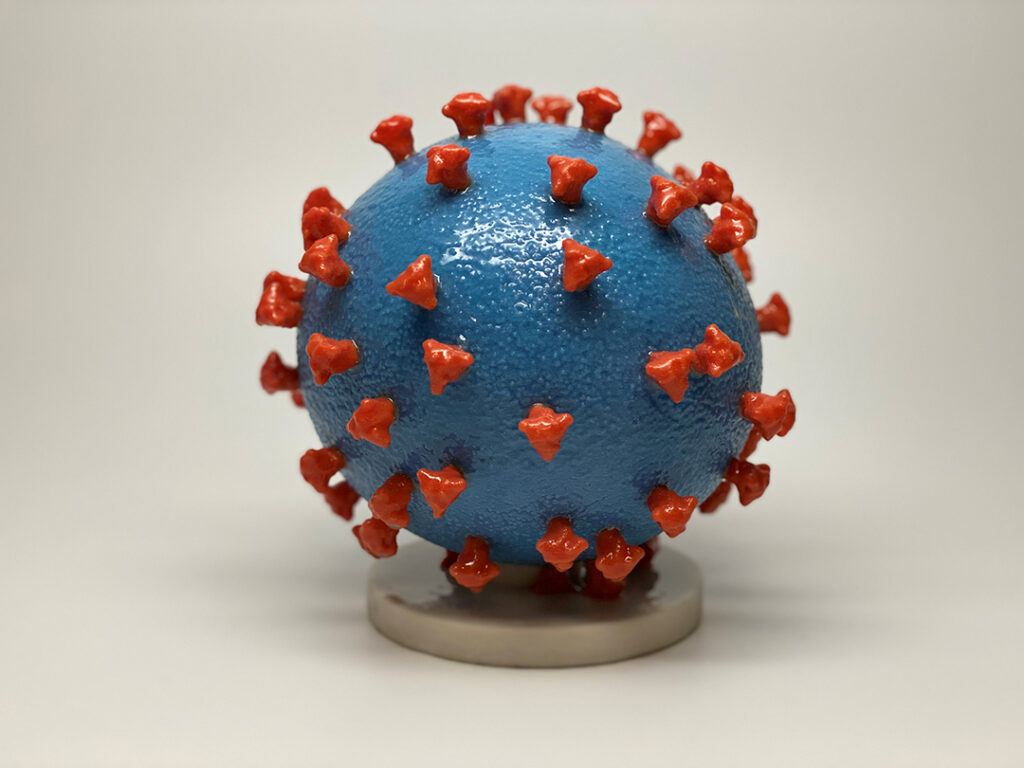ADF STAFF
The COVID-19 variant that emerged in South Africa in December 2020 has mutations that researchers worry may reduce the effectiveness of vaccines now being deployed.
Unlike older vaccines that used dead or inactive virus to build immunity, the most popular vaccines against COVID-19 teach the body’s defense system to recognize the spike proteins coating the outside of the coronavirus to fight infection. Those spikes allow the virus to enter human cells.
The recently identified South Africa variant, known as 501Y.V2, has multiple mutations in its spike proteins.
“The reason why we’re concerned is because the more variable the composition of the spike protein becomes, the greater the likelihood that vaccines that are currently developed will not be able to act against those sort of viruses,” vaccine expert Shabir Madhi, a professor at the University of Witwatersrand, told South Africa’s SABC News.
In a preliminary report released January 8, the pharmaceutical company Pfizer said its studies showed its vaccine was effective against the South African variant despite its mutations. However, the study did not look at the full set of mutations found in the South African variant or in a similar variant in the United Kingdom.
The 501Y.V2 variant has become the dominant version of COVID-19 circulating in South Africa, accounting for more than 80% of new cases.
The variant has proven to be more transmissible than its predecessor, and those who contract it carry a higher viral load, making them more infectious to others. It’s unclear at this point whether the new variant makes people sicker.
“We should expect this variant to continue to emerge,” said Dr. John Nkengasong, director of the Africa Centres for Disease Control and Prevention (Africa CDC), during his December 24 weekly briefing. “We don’t know the extent of the spread across the continent.”
Madhi suggested the new variant probably has reached South Africa’s neighboring countries. The World Health Organization has called on countries to boost surveillance and analysis across Africa’s 12 genome sequencing laboratories to find new mutations and strengthen the continent’s pandemic response.
South Africa has reported 1.26 million cases since the beginning of the pandemic and more than 34,300 deaths. South Africa accounts for more than one-third of the continent’s overall caseload and remains the country with the highest infection growth in COVID-19.
Infections accelerated late in 2020, increasing by 40%. Deaths grew by 23%, according to the Africa CDC.
Madhi said it’s unclear how much of that increase is tied to the variant versus relaxed social distancing and mask wearing.
“The increase in transmission in South Africa is more likely a combination of factors,” Madhi said. “The variant itself might have assisted in terms of contributing to the massive resurgence we’re experiencing.”
Variants develop as viruses replicate their way through a population, so the rise of a variant like the one in South Africa is not unusual, according to virologist Sunday Omilabu, director of the Centre for Human and Zoonotic Virology at Nigeria’s Lagos University College of Medicine and Teaching Hospital.
Omilabu is studying a separate, similar variant that appeared in Nigeria about the same time as the one in South Africa.
Because the virus changes as it spreads, Nkengasong and other experts say the key to fighting it is to suppress its movement through the population by wearing masks and avoiding large gatherings.
“What we should focus on are the measures that are in place to prevent the transmission of COVID,” Nkengasong said. “If we tackle the virus, then we tackle the variant.”

